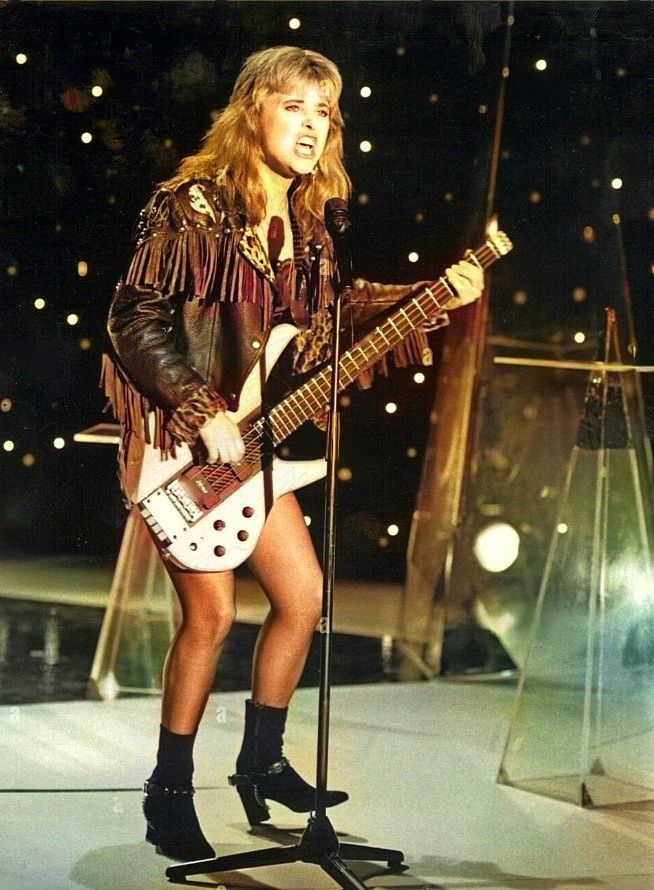
“Shine My Machine”: A Roaring Anthem of Empowerment and Self-Discovery
Ah, the 1970s. A time of seismic shifts, of bell bottoms and glitter, of rebellious music that throbbed with a raw, untamed energy. For many of us who lived through it, those years weren’t just a decade; they were an awakening, a soundtrack to our own burgeoning independence. And at the very heart of that electrifying sound stood a figure who defied categorization, a leather-clad force of nature who commanded stages with an effortless swagger: Suzi Quatro. Her name alone conjures images of unbridled rock ‘n’ roll spirit, a pioneer who kicked down doors and paved the way for countless women in music.
Today, we’re casting our minds back to a particular track that, while perhaps not her most commercially ubiquitous, resonates deeply with the core of her artistry and the spirit of the era: “Shine My Machine.” This song, a vibrant cut from her self-titled debut album, Suzi Quatro, released in 1973, might not have scaled the dizzying heights of the charts like some of her later hits, but its impact was no less significant. At a time when rock music was still largely a male-dominated arena, Suzi Quatro burst onto the scene, a diminutive figure with a colossal presence, bass guitar slung low, ready to challenge every preconceived notion. While specific chart positions for individual album tracks like “Shine My Machine” were less common to track than singles, the album Suzi Quatro itself performed respectably, laying the groundwork for her massive international success that would soon follow. Its release was a statement, a declaration that a woman could not only play rock and roll, but be rock and roll, authentically and unapologetically.
The story behind “Shine My Machine” is intrinsically linked to Suzi Quatro‘s own journey. Having honed her craft in various bands with her sisters, she was discovered by legendary producer Mickie Most, who saw in her not just talent, but an undeniable star quality. He whisked her away from Detroit to England, a bold move that would forever alter the trajectory of her career. This period of transition, of stepping into her own as a solo artist, is palpable within the grooves of her debut album. “Shine My Machine” can be interpreted as a metaphor for this very transformation. “Shining her machine” isn’t just about polishing a literal motorcycle, though the imagery certainly evokes that classic rock rebel spirit. It’s about preparing herself, fine-tuning her own inner workings, and getting ready to unleash her power on the world. It’s about self-care, self-preparation, and the meticulous crafting of one’s own identity as an artist and as an individual.
Lyrically, the song is imbued with a sense of readiness, of a powerful entity preparing for action. The “machine” can be seen as her instrument, her voice, her very being as a performer. It’s a statement of self-possession and confidence. The driving rhythm and Quatro‘s signature growl reinforce this message; there’s no hesitation, no doubt, only a simmering intensity building towards an explosive release. For those of us who came of age during this era, these lyrics resonated deeply. We were also “shining our machines,” in our own ways, preparing for our own journeys, whether it was embarking on a new career, exploring personal freedoms, or simply finding our voice in a rapidly changing world. The song speaks to the universal human desire for readiness, for being primed and prepared to face whatever challenges or opportunities lie ahead. It’s about maintenance, not just of an external object, but of one’s inner self, ensuring that one is in optimal condition to perform, to live, to thrive.
Beyond the literal interpretation, “Shine My Machine” carries a deeper meaning of empowerment. It’s a testament to the idea that true power comes from within, from nurturing and maintaining one’s own strength and capabilities. In an era where women were still fighting for equal footing, Suzi Quatro, through songs like this, became a symbol of defiance and self-reliance. She wasn’t waiting for permission; she was taking charge, doing the work, and preparing herself to conquer. This resonates with the enduring spirit of rock and roll itself – a genre built on rebellion, individuality, and a fierce determination to be heard. As we look back, this song serves as a powerful reminder of a time when music wasn’t just entertainment; it was a catalyst for change, a mirror reflecting our own aspirations, and a bold declaration of who we were, and who we were determined to become.